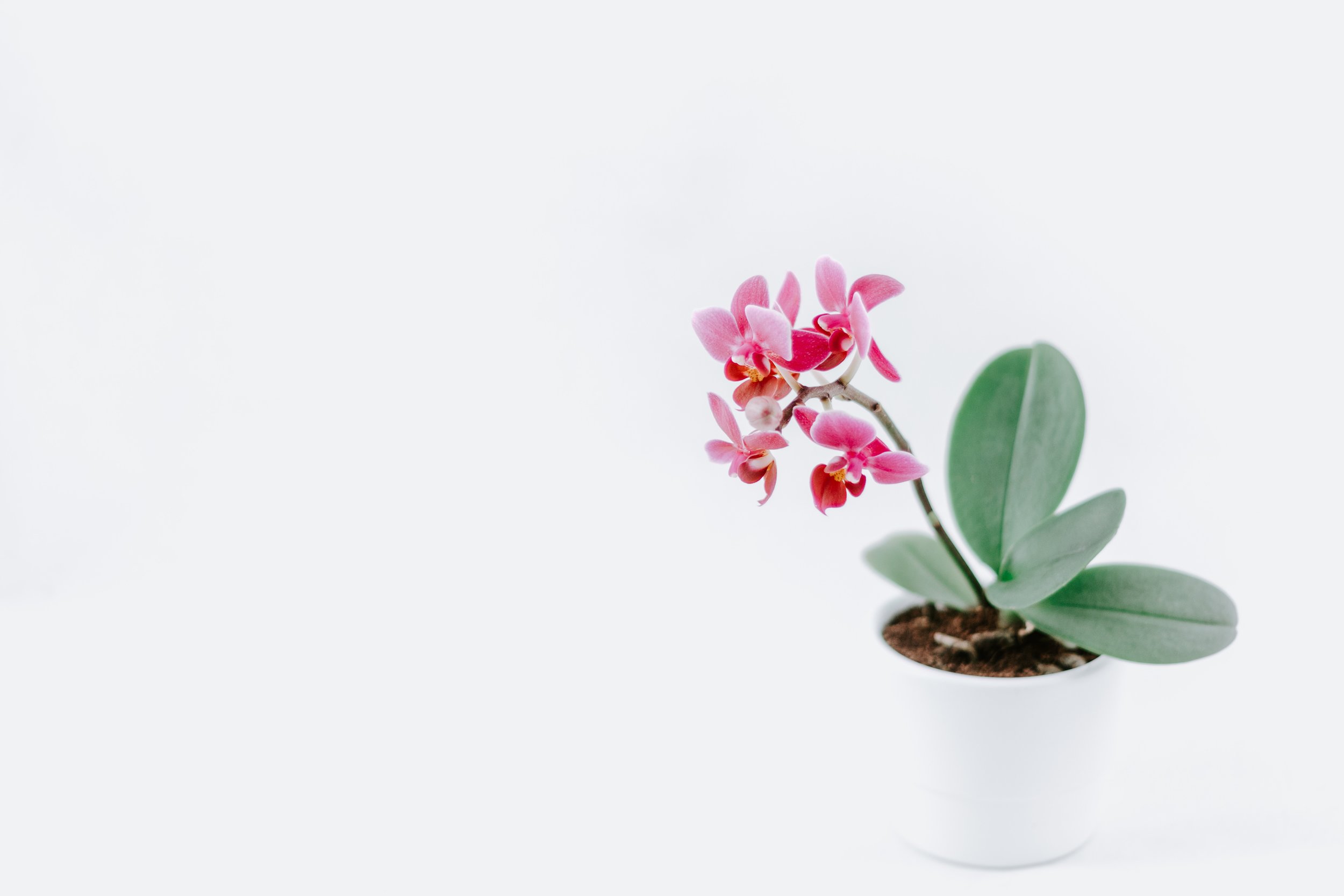Indoor plants make for excellent decorative touches, but did you know they can help improve your overall health as well? Unlike humans, who breathe oxygen and exhale carbon dioxide, plants do just the opposite, emitting fresh, healthy oxygen into stale, indoor rooms. In addition, plants raise the overall humidity level of the room, resulting in more supple skin even in winter's dry, indoor heat. What types of houseplant work best? Although you can't go wrong with just about any type of plant, some provide added benefits in addition to cleaning and moisturizing the air. Try these houseplants for a boost in beauty, mind and mood.
Words: Kate Harveston
Choose Orchids for Better Sleep
Image: Paweł Czerwiński on Unsplash
Like many plants, orchids absorb carbon dioxide during the day and release oxygen at night. Oxygen helps people rest more deeply as they expend less energy processing the air they breathe. In addition, the subtle scent of orchids leaves a refreshing aroma in the air even as it adds moisture. Orchids come in so many colors, they complement nearly any bedroom decor. Who doesn't like opening their eyes in the morning to see a pretty pink or yellow flower smiling at them? For better sleep, try adding an orchid to your bedside table.
Look to Aloe Vera for Healing
Image: Hàn Vi Phạm Thị on Unsplash
Aloe vera, a plant revered by the ancient Egyptians, possesses multiple health benefits. Externally, aloe vera gel offers a host of skin-soothing benefits. Sunburned or dry skin drinks up aloe vera gel to ease the redness away. Simply break off part of a leaf and squeeze the gel directly onto the affected areas. Aloe vera gel also eases the signs of aging such as fine lines and wrinkles. The raw gel fresh from the plant works wonders, as do many lotion preparations containing aloe. Like all plants, aloe vera cleans the air as well.
No Green Thumb? Switch to Succulents
Image: Neslihan Gunaydin on Unsplash
Many would-be plant enthusiasts hesitate a bit, worrying that their thumbs simply aren't green enough to keep an indoor plant alive. For those with busy lives that prevent regular watering, succulents, such as cacti, offer a low-maintenance decorating and air-cleansing option. Succulents only require watering about once per week while they grow. During the winter, many succulents rest and require far less water. Strive to let the soil dry out completely in between watering and ideally use rainwater, since tap water contains many minerals that can build up on unglazed flower pots.
Snake Plants for Glowing Skin
Image: Samuel Zeller on Unsplash
Similar to succulents, snake plants require little care, but this plant can also pack a powerful beauty punch. Snake plants help heal skin rashes such as prickly heat or eczema resulting from dry, indoor air. Snake plants make for one of the best indoor air purifying systems, and they do so naturally. Next time you shop or dine out, pay attention to how many of the shops feature snake plants as part of their decor. Not only do they make a nice decorating touch, but they also boost air humidity.
Caring for a Rose in Winter
Image: Henrique Ferreira on Unsplash
While winter may not make for the best season to plant an outdoor rose garden, indoor miniature tea roses make for a bright splash of color sure to brighten even the dullest cubicle. Tea roses live happily as indoor potted plants when given enough water and sun to thrive. Dead-heading old miniature roses helps new blooms grow. However, those hoping to reap the health benefits of tea roses should allow one or two blooms to fade without cutting off the dead flower. This will allow rose hips to form, and rose hips carry a host of health benefits, including a mega-dose of vitamin C to help bust winter colds naturally.
Incorporate a Rubber Tree Plant
Households with young children or busy office spaces where many mix and mingle benefit from incorporating a rubber tree plant or two into the decor to help kill germs. Rubber tree plants contain antimicrobial properties that kill bacteria and fungi in the air. Because rubber tree plants take up quite a bit of space, try incorporating them into larger rooms such as the living room when used at home. At work, rubber tree plants make for excellent conference room decor or an accent in any area where people frequently come together.
Just Dig It
Image: Neslihan Gunaydin on Unsplash
Indoor plants improve overall air quality by removing carbon dioxide from the air and emitting fresh new oxygen stores. Some houseplants offer additional health benefits that extend beyond improving air quality. By selecting the right plants to accent your home and office, you may enjoy a happier and healthier winter.







